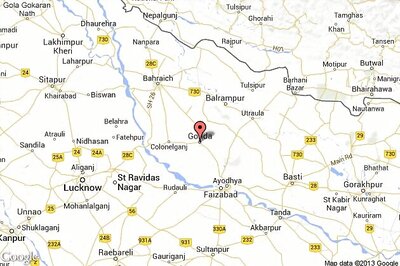
views
There are very few directorial debuts that haunt you the way Konkona Sensharma’s does. In telling the story of a sensitive adolescent man who kills himself, frustrated with the everyday cruelties of his careless, bullying relatives, she seamlessly creates a world that’s almost Gatsby like—unforgiving, heart-breaking, with little scope for justice.
After having had a successful run at film festivals across the world, A Death in the Gunj released in India two years ago. Though the film is based on real-life events—Sensharma’s parents did own a holiday home in McCluskieganj where the film is set and Shutu, the movie’s protagonist, was their relative who committed suicide when she was young—but Sensharma never really properly met Shutu for real.
“I must have been three or four years old when Shutu died. So I never met him. Even if I had, it would have been very fleeting, so I don’t really remember,” she says, revealing that she, in fact, framed her melancholic, contemplative protagonist a lot after herself.
“Shutu is a lot of me, he is how I was like growing up. I was bullied as a kid—in school, in my building. I was very shy, introverted. I still am those things but over the years, I outgrew them. However, there is still a core of me which is that. And that is what Shutu is,” she says.
Vikrant Massey as Shutu
Though A Death in the Gunj has a motley group of actors—the late Om Puri, Tanuja, Kalki Koechlin, Ranvir Shorey, Gulshan Devaiah and Tilotama Shome—it’s Vikrant Massey who gives the film its beating heart and the brooding soul. Gunj did for Massey what Highway did for Alia Bhatt. Despite him having starred in Lootera and Dil Dhadakne Do before it, it was Gunj that established Massey as the actor that Sensharma knew he was.
On finding her Shutu in him and casting him as the lead in her first directorial, she says she wasn’t apprehensive at all. “I needed a very good actor. And he is experienced. He had done a lot of television. But I had not seen any of his television work. It was his performance in Lootera that caught my eye. I was like ‘Wow! Who is this actor who’s so good that I feel like watching him?’” The rest, she says, followed.
Writing the film
Sensharma knew the story as a child. It was one of the many incidents that her parents would talk about every now and then with her and at gatherings. “My dad used to tell me these stories again and again. One of these always fascinated me. So when I had some time after I had my kid, we discussed it further and it started becoming bigger in my head. In my mind, it was a very romanticised, glorified time already because it was my childhood and also the time when my parents were still together,” she says.
However, though she knew the story, it did not come to her on paper all at once. “I initially wrote it in three acts. But it was very dissipated, there was no immediate dramatic impact. So I decided to do it on one trip over a week. And that helped me to consolidate those experiences in a way that hits the audience and is also very immediate to the people who it happens to,” says the 39-year-old.
Read: We Should Reflect on Death at Some Point in Life, it Helps Us Prepare Better, Says Lisa Ray
Read: I Am Not Chasing Stardom, I Am Chasing Good Content and Relatability, Says Vikrant Massey
Keeping the suspense alive
The film does not follow a linear narrative. It begins with a death but we do not know whose and then follows the events that lead to it. “It’s not a murder but I was really fascinated with how people contribute to a suicide in different ways. To keep that suspense up about who is going to die, I did a Day 1 and a Day 2.
“I didn’t want to go in any one way. I wanted mess with people’s notions of what to expect, I wanted them to constantly question if it was a psychological thriller or a ghost story or about group dynamics. I wanted it to be all these things,” Sensharma says.
Death as a motif
In keeping with the title, death looms large throughout the film. It’s as palpable as Shutu’s inner turmoil, his angst and the decay all around him. Though everything in the film is a build-up towards its undeserved tragic climax, but when it does finally unfold, it leaves you jarred just the same.
Talking about giving death almost a physical presence in the film, Sensharma says, “In the 80s, McCluskieganj was dying, the Anglo-Indian community, for whom it was originally built, was dying, and Shutu was dying. I found it very interesting to kind of see one’s decay with respect to the other.”
Always the outsider
Sensharma’s Shutu is an outsider in a community of outsiders who have come to spend a week together in a sleepy village that’s been othered by the rest of the world, and lies largely forgotten. And yet, no one could see him dying a little each day until he finally does.
“I wanted the feeling of the outsider. I have always felt like an outsider and I enjoy the feeling very much. I think it gives me a certain perspective. It is who I am and I don’t fight it,” she says.
“That’s also why the film is placed in 1979. Because in today’s day and age, it would not have happened like this. In fact, today, it is the time of the geek. I think Shutu would have flowered today. He would have had a digital life, would have probably gone to an engineering college and his creative streak could have found more avenues today than they did then,” she concludes.
Follow @News18Movies for more.

















Comments
0 comment